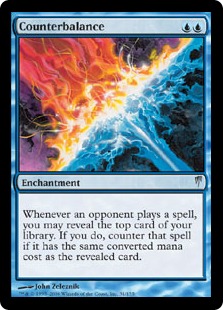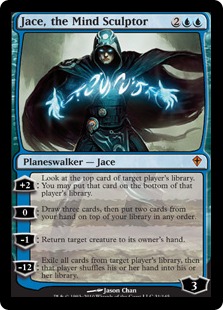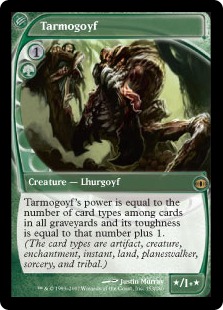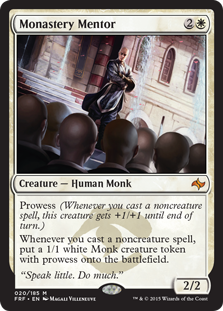Hello everyone! It’s Petr again and this time around we will talk Legacy.
The reason is very simple; there a lot of important tournaments in this format found all over the world in the next couple of weeks, but most notably there is ”GP Chiba”. Unfortunately I will not be playing in that tournament, even though I would love to (Japan is by far the most enjoyable country in the world) because I didn’t find anyone to go there with and I didn’t want to spend the entire time alone.
I usually don’t play Legacy that often, but I still think that I play more than the average player + my friend from Czech Republic Tomas Mar plays it all the time and he provided me with some great tips for this article.
Unique metagame environment
The most important thing to realize about Legacy is that the metagame doesn’t work the same way as in other formats, because of card availability.
What I mean by that is that some players will have access to only one deck (doesn’t matter if they have it or borrow it) and they will play it no matter what, which means that you can’t really play a deck that tries to prey upon certain strategies, because those strategies are still going to be only a relatively small part of the field. A metagame still exists of course, but it looks different. For instance, a new card like is spoiled and it gets played in Reanimator and the deck gets a lot better, because of that – people are still going to play similar decks, but they will have more hate cards against that strategy.
What I am trying to say is that it’s often about card choices and not about deck choices. There are obviously still a lot of players with more decks available to them and they will try to adjust to what is best at any certain moment, but even they usually don’t change it up that much(they might play Shardless over Delver, but they will not start playing with Elves all of the sudden).
Once you realize this, it starts to become clear that you either have to play a strong proactive strategy (combo) or a blue deck with . Someone might try to convince you, that decks like lands or death and taxes are playable, but I don’t buy that. Those decks usually just try to take advantage of unexperienced blue players – the blue decks are super complicated (, etc.) and you can get easily punished if you make a play mistake or board incorrectly.
As you might have already figured out I think that the best Legacy decks are the blue ones, but the problem is that they are super difficult to play well. The best options in my opinion right now are: Shardless, Miracles and 4c.
, the Necessary Evil
Another important thing to realize about blue decks is that is usually a very bad card, but it is a necessary evil.
The reason why reactive strategies in modern aren’t playable is that the decks attack from too many different angles and you can’t play answers to all of them (not even after sideboard), but takes care of everything. That being said, you board it out in all the fair matchups and sometimes counterintuitively even against combo decks (that’s only if your deck is full of good cards – if that’s true, then there is no reason to have a 2 for 1 if you can do the same with another card without losing value). The only time, when is also good post board is when the matchup is about resolving certain important spell (or sequence of spells) like Storm or Show and Tell.
I am not a miracles expert so I don’t know if you want to keep it in the mirror, because the matchup is on one hand super grindy and you don’t want to lose a card (especially in the face of ), but there are also some super important cards like and , which you have to answer no matter what.
This is close to what I would play if there was a Legacy tournament tomorrow:
Petr Sochurek「4C」
3
2
1
1
4
4
2
3
-Land(20)-
4
4
3
2
-Creature(13)- |
4
4
2
1
1
3
3
1
2
1
1
4
-Spell(27)- |
3
2
2
2
1
1
1
1
1
1
-Sideboard(15)- |
This deck is more of a midrange deck, that tries to have reasonable to
good matchup against mostly everything – it has stronger lategame than most other similar strategies, while still able to contain those aggressive tempo elements to get free wins and pressure certain strategies.
I can’t tell you for sure, that this is better than Miracles, but I will try to explain my thought process on this: When someone askes about deck difficulty, it is often very hard for me to give him the right answer because it varies from player to player and there are different levels of difficulty.
What level are you in ?
First you have to ask yourself a question what do you actually mean by saying ” which deck is easier to play ?”. Where I am going with this is that some decks are very very difficult (sometimes almost impossible) to play flawlessly but it’s not that hard to win with them, while on the other hand, some decks are not that hard to play without making mistakes, but you have to play perfectly to be able to win with them.
◆ If you are Beginner player
If I am a complete Legacy beginner, then it’s better for me to play Delver over Miracles, because sometimes you just go , , , and you just crush them.
◆ If you are Intermediate player
If you play Legacy for some time already and you know how to not waste your and are able to play Legacy ABC magic, then it’s probably better for you to play Miracles, because you already know to a certain extent how to play and you get free wins against lots of strategies – sometimes you just play turn 2, or you them or they don’t have answer to your – you choose.
The problem with this is, that this won’t work against certain type of decks like Show and Tell, Lands or mirror and you need to be an expert to be able to navigate the games to win those matches – in some games or matchups it doesn’t really matter if you or top cards in a wrong order, but in others you have to be really precise and most players (including myself) are not capable of doing that.
◆ If you are Good player(but not the best)
If you think that you are really good (but not yet the top level miracles player), then you should play Delver again (I know that the list that I posted doesn’t actually play the card , but the strategy is the same). Problem that many people have with playing Delver is that they are always focusing too much on the A game plan – killing them.
If you want to be succesful with a deck like this, you need to know when to switch gears and be more controlling, when the games are grindy and you should be prioritizing getting yourself to the best possible position etc. Things like that are not easy for sure, but once you start thinking in those tracks, then it is not that hard. You still have to know how to play every matchup and situation about and adjust your play and sideboard accordingly, but it’s possible to get there relatively quickly.
◆ If you are the Legacy Master
If you are the stone cold master, then you should just play Miracles – it is super powerful and it has a tremendous amount of library manipulation, which means that if you built your deck perfectly and play it perfectly, then you will most likely win most of your matches – the deck has answers to everything, plays powerful cards and is very stable. Are you that master?
This is a decklist of the best Miracles player I know – Tomas Vlcek.
Tomas Vlcek「WU Miracle」
3
3
3
2
4
3
1
1
-Land(20)-
3
2
-Creature(5)- |
4
4
4
2
1
1
4
4
1
4
4
2
-Spell(35)- |
3
3
2
2
1
1
1
1
1
-Sideboard(15)- |
I hope I could help shed some light on the subject on what deck you should play.
If you want to ask about something, I will be happy to provide you with an answer on facebook or twitter so don’t be afraid and add me.
As always thanks for reading, Petr Sochurek.
Cards found in the Article
 Petr Sochurek
Petr Sochurek
His prowess in reading the meta and taking advantage of it with flawless plays is among the reasons he is considered to be one of top European players right now.
Having played Grixis Control to a magnificent victory at GP Paris 2016.
He is most assuredly one of the top players to keep an eye on right now!
Read more articles by Petr Sochurek














